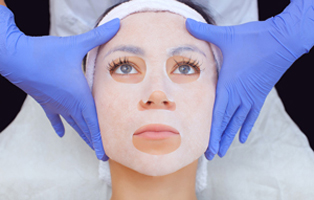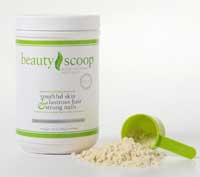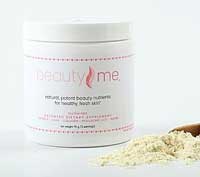 You can’t skim social media or browse a beauty blog without encountering the sheet mask. But, just how valuable are they? Dr. Yagoda unmasks the myth of the sheet mask…
You can’t skim social media or browse a beauty blog without encountering the sheet mask. But, just how valuable are they? Dr. Yagoda unmasks the myth of the sheet mask…
Despite the rage, sheet masks bestow beauty that is only “skin deep”—that is their benefits are superficial, and not true or lasting. That’s not to say that there isn’t some value in adding a sheet mask to your skin care regimen, but, you need to know that it will only work on the top layers of your skin, leaving the lower layers (where collagen and elastin hang out) untouched.
Because sheet masks don’t work in the deeper layers of your skin where collagen and elastin provide support and elasticity, your skin will not display a smoother, tighter, or more youthful appearance after using these masks. At upwards of $5 a pop, you will receive only limited and temporary moisturizing, with little to no anti-wrinkle or anti-aging effects.
Single-use sheet masks are like large soaked cotton pads with active ingredients that stay in contact with your skin for as long as you wear the mask (typically 20 minutes). But because the skin’s main task is to act as a barrier to protect you from the environment and to prevent absorption of toxins, many of those active ingredients will not get absorbed, even if you were to leave the mask on for much longer than 20 minutes!
So if you are thinking, “nothing ventured, nothing gained,” then consider this: sheet masks, in order to stay moist without drying out, contain ingredients that can harm your skin. Yep, ingredients like alcohol, butylene glycol (a delivery agent and solvent), polyethylene glycol (a preservative), and fragrance can have negative effects on your skin.
A better vehicle for moisture delivery (but still subject to limited absorption due to the skin’s barrier function) would be the serums, lotions, creams and ointments that you can buy at your corner drugstore or Dr. Yagoda’s office. Without doubt, the best vehicle for moisture delivery is an ingestible beauty supplement, in powder form, (because it does not need to be digested in order to be absorbed).
Whether choosing a sheet mask, topical products, or a beauty nutritional supplement, select one that contains all three of the active ingredients listed below:
- antioxidants to protect the skin from premature aging and damage from free radicals;
- peptides to help make more collagen; and,
- hyaluronic acid to hydrate and plump the skin.
An ingestible is a more effective and affordable option than sheet masks. But if you just have to jump on the gimmicky sheet mask wagon, you’ll need to adjust your expectations to receiving little more than hydration and entertainment in order to be satisfied!
There are good reasons why Dr. Yagoda is the one other doctors choose. To find out why, schedule your consultation with Dr. Yagoda. Call 212.434.1210 or email info@DrYagoda.com.






























 The short answer is…in your diet! Because collagen is a large molecule, and because your skin’s main function is to act as a barrier, topical collagen is not well absorbed into the skin. Interestingly, your body can create collagen, if you consume (and absorb) a lot of proteins. But, according to the Centers for Disease Control, 33% of people over the age of 18 (and this number increases with advancing age and certain medical conditions) have difficulty absorbing nutrients even from a healthy and balanced diet. For these people, supplementation is important both to correct insufficiency and to bypass problems with absorption.
The short answer is…in your diet! Because collagen is a large molecule, and because your skin’s main function is to act as a barrier, topical collagen is not well absorbed into the skin. Interestingly, your body can create collagen, if you consume (and absorb) a lot of proteins. But, according to the Centers for Disease Control, 33% of people over the age of 18 (and this number increases with advancing age and certain medical conditions) have difficulty absorbing nutrients even from a healthy and balanced diet. For these people, supplementation is important both to correct insufficiency and to bypass problems with absorption. While there are many collagen supplements on the market, only BeautyScoop (for youthful skin, lustrous hair and long, strong nails) and BeautyMe (for healthy, fresh skin on your period) are patented and clinically proven. Each contains 3.5 grams per serving of types I and III collagen (in powder form and in the proper ratio with zinc, manganese and copper for optimal absorption). BeautyScoop’s rapid results are unsurpassed and are clinically proven by ten years of rigorous scientific studies that were double blind, placebo-controlled, randomized, prospective and run by independent doctors. These clinical studies were published in the
While there are many collagen supplements on the market, only BeautyScoop (for youthful skin, lustrous hair and long, strong nails) and BeautyMe (for healthy, fresh skin on your period) are patented and clinically proven. Each contains 3.5 grams per serving of types I and III collagen (in powder form and in the proper ratio with zinc, manganese and copper for optimal absorption). BeautyScoop’s rapid results are unsurpassed and are clinically proven by ten years of rigorous scientific studies that were double blind, placebo-controlled, randomized, prospective and run by independent doctors. These clinical studies were published in the